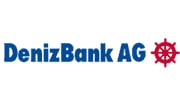EDI in Banking and Finance
EDI in banking and finance ensures that for example, communication in the transfer of accounting data and statistics is secure.

Automation of financial data
In banking, strict compliance with all regulatory requirements and legislative stipulations, including regulations by central banks, is key. When exchanging financial data between all involved parties, security and reliability are essential when it comes to guaranteeing timely payments, efficient cash management and other large-scale financial transactions.
The benefits of EDI
EDI (Electronic Data Interchange) processes ensure secure communication with central banks when transmitting accounting data and statistical reports. Additionally EDI offers the following benefits for the banking industry:
- Automation of multiple payments (e.g. payroll)
- Efficient cash management via frequent account reconciliation
- Electronic Bill Presentment (EBPP) in online banking systems
- Exchange of financial information between banks
- Minimizes error risk
- Highly secure processes
- Minimizes the need for manual intervention























